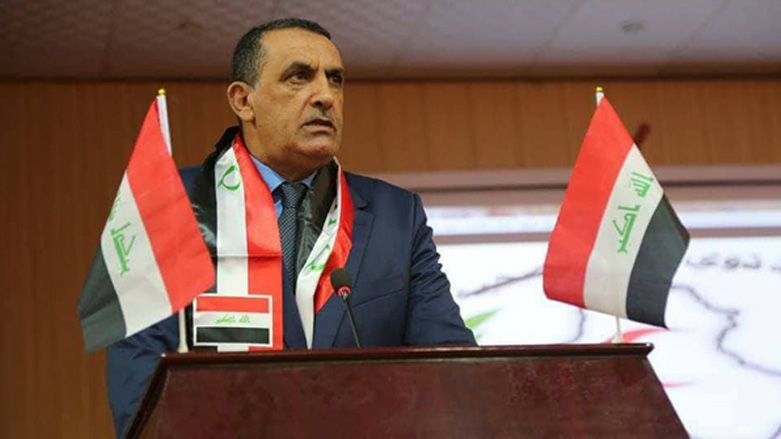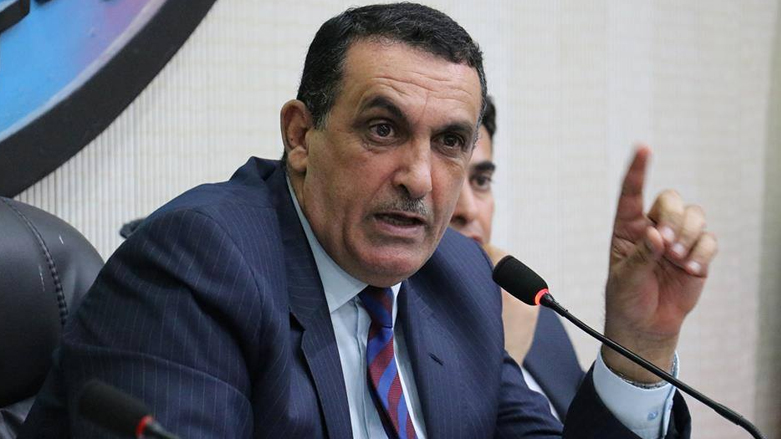Kurdish movement urges day in court for 'chauvinist' Kirkuk governor

ERBIL (Kurdistan 24) – The Movement for Kurdish Rights on Monday called for the current Baghdad-imposed governor of Kirkuk to appear in court over his “chauvinistic and ultranationalist policies” against the Kurds and Turkmen components of the province.
The movement, which is based in Kirkuk, in a statement, stressed that the current acting-Governor of Kirkuk, Rakan Saeed al-Jabouri, a Sunni Arab, over the past few months has been creating issues for Kurdish and Turkmen farmers in Kirkuk. He is reportedly taking advantage of antiquated agricultural policies and contracts which were issued under the former authoritarian regime in Iraq.
Kirkuk is an oil-rich province located in the south of the Kurdistan Region and north of Iraq. It is a multi-ethnic region with a diverse religious background, made up of Kurds, Turkmen, Arabs, and Christians. Kurds account for the majority of the population.
Kirkuk is also a disputed territory between the Kurdistan Regional Government (KRG) and the federal government of Iraq. The province has undergone severe systematic campaigns of demographic change to ‘Arabize’ the region and obstruct the Kurdistan Region’s claim on it.
The Kurdish movement accused Jabouri of having “chauvinistic and ultranationalist policies.”
Iraqi forces and Iranian-backed Shia militias on Oct. 16, 2017, attacked and took over Kirkuk and other disputed territories, forcing the Kurdish Peshmerga forces to withdraw. The Kurdish forces were in charge of protecting the areas from threats by the Islamic State (IS) since the 2014 collapse of the Iraqi Army.
Following the attack, Kirkuk Governor Najmaldin Karim was ousted, and Jabouri replaced him as the acting governor.
Last week, Jabouri proposed an ethnic quota for provincial posts and employment. He suggested Arabs, Turkmens, and Kurds each represent 32 percent of public positions, with the remainder going to Christians.
Kurdish parties immediately rejected the proposal and have repeatedly stated that this breakdown is inconsistent with the demography of Kirkuk and the seats they won in the May 12 parliamentary elections.
“This measure by the Kirkuk Governor contradicts all the laws and articles of the Iraqi constitution,” the statement of the Kurdish movement argued.
“[He] uses the name of the Baghdad [federal] government to impose his policies.”
It also noted that such measures were not in the interest of the components in Kirkuk.
“To the contrary, this will cause tensions, instability, and spread hate in Kirkuk. It will benefit the agenda of the country and party who have interests in [stoking] instability and tensions between Kirkuk’s components.”
The Movement for Kurdish Rights called on the people of Kirkuk to reject the policies issued by the current governor and apply pressure for Jabouri to be held accountable in court.
Kurds have often criticized Jabouri for pursuing policies that support Arabization campaign to change the current demographic makeup of Kirkuk.
Editing by Nadia Riva

